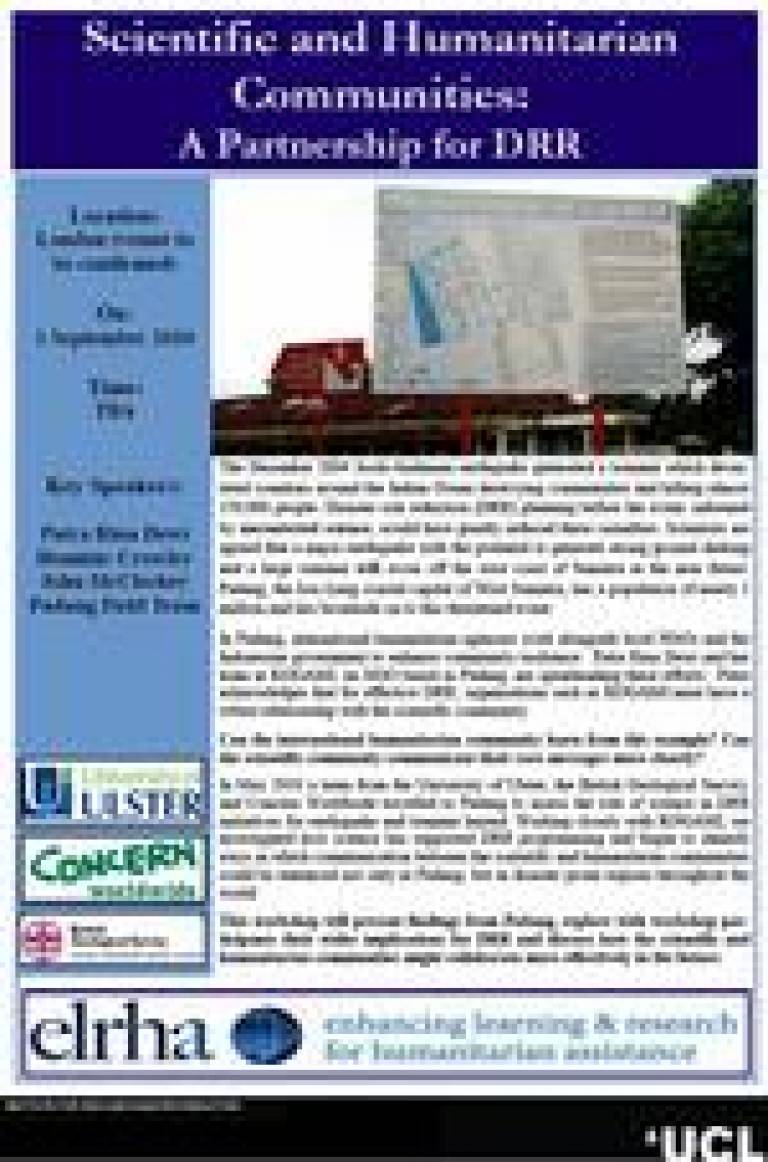Scientific and Humanitarian Communities: A Partnership for DRR
28 July 2010
The IRDR will be hosting the following meeting in September:
 ucl.ac.uk/drupal/site_risk-disaster-reduction/sites/risk-disaster-reduction/files/ELRHA.jpg%3Fhires.jpeg" title="elrha" target="_self">
ucl.ac.uk/drupal/site_risk-disaster-reduction/sites/risk-disaster-reduction/files/ELRHA.jpg%3Fhires.jpeg" title="elrha" target="_self">
Location:
London (venue to be confirmed)
On:
1 September 2010
Time:
TBA
Key
Speakers:
Patra Rina Dewi
Dominic Crowley
John McCloskey
Padang Field Team
The December 2004 Aceh-Andaman earthquake generated a tsunami which devas-tated countries around the Indian Ocean destroying communities and killing almost 250,000 people. Disaster risk reduction (DRR) planning before the event, informed by uncontested science, would have greatly reduced these casualties. Scientists are agreed that a major earthquake with the potential to generate strong ground shaking and a large tsunami will occur off the west coast of Sumatra in the near future. Padang, the low-lying coastal capital of West Sumatra, has a population of nearly 1 million and lies broadside on to this threatened event.
In Padang, international humanitarian agencies work alongside local NGOs and the Indonesian government to enhance community resilience. Patra Rina Dewi and her team at KOGAMI, an NGO based in Padang, are spearheading these efforts. Patra acknowledges that for effective DRR, organisations such as KOGAMI must have a robust relationship with the scientific community.
Can the international humanitarian community learn from this example? Can the scientific community communicate their core messages more clearly? In May 2010 a team from the University of Ulster, the British Geological Survey, and Concern Worldwide travelled to Padang to assess the role of science in DRR initiatives for earthquake and tsunami hazard. Working closely with KOGAMI, we investigated how science has supported DRR programming and began to identify ways in which communication between the scientific and humanitarian communities could be enhanced not only in Padang, but in disaster prone regions throughout the world. This workshop will present findings from Padang, explore with workshop par-ticipants their wider implications for DRR and discuss how the scientific and humanitarian communities might collaborate more effectively in the future.
 Close
Close






